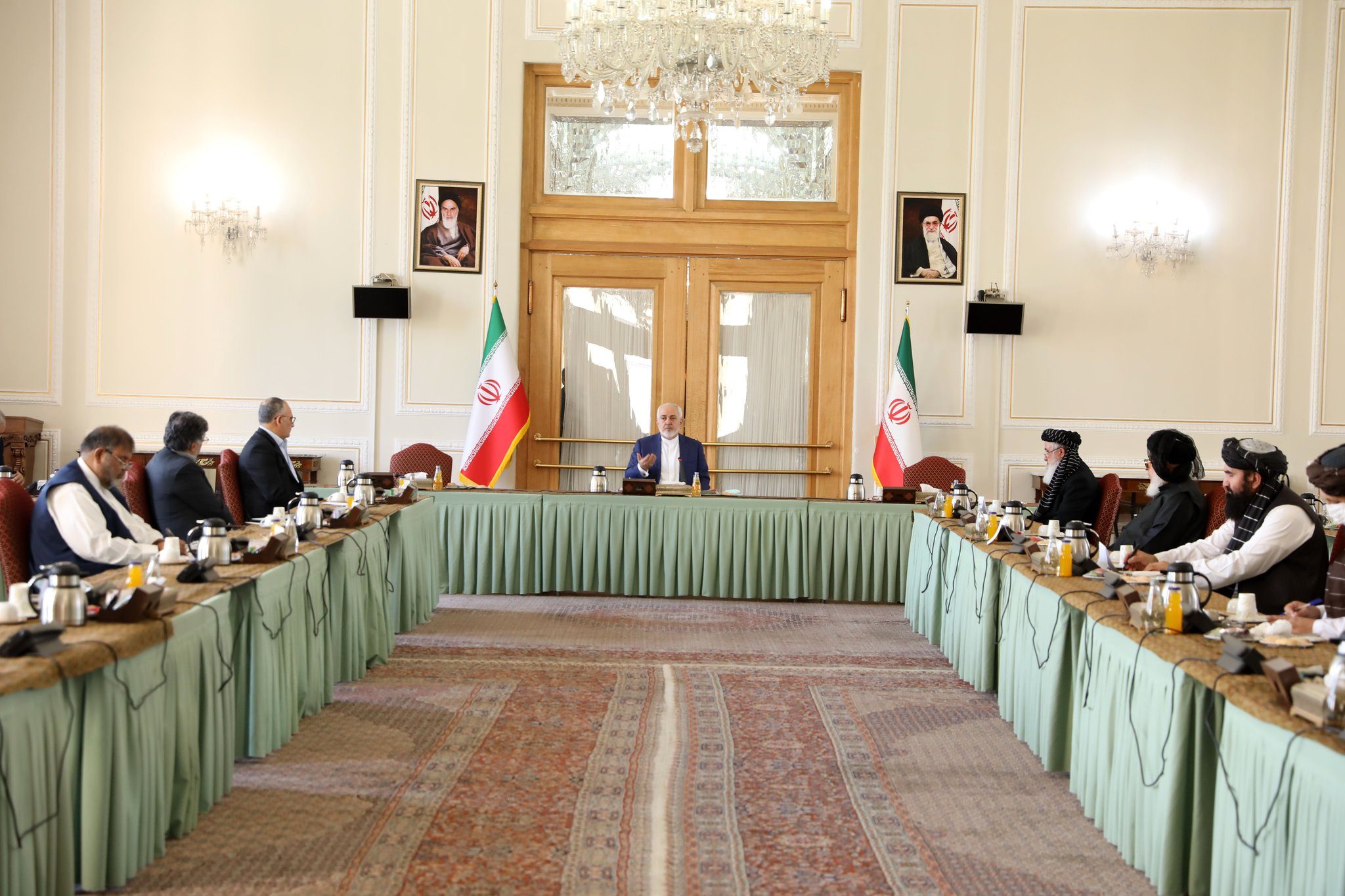Qatar’s amir sent Afghan President Ashraf Ghani a letter on Doha-Kabul bilateral relations and ways to support and develop them.
Iran hosted peace talks between representatives from the Afghan government and the Taliban on Wednesday in what was described as a “surprise” meeting, the Associated Press [AP] reported.
The Taliban political committee, led by chief negotiator Sher Mohammad Abbas Stanikzai, flew from Qatar to Tehran for the talks. Former Afghan Vice President Younus Qanooni was also among the attendees from the High Council for National Reconciliation.
During the meetings, Iran’s Foreign Minister Mohammad Javad Zarif urged all parties to “take difficult decisions for the future of the country” while expressing Tehran’s readiness to assist dialogue to “resolve the current conflict in the country” following what he described as “failure of the US in Afghanistan”.
“Returning to the inter-Afghan negotiation table and committing to political solutions is the best choice,” he added.
The talks came amid a surge in violence in Afghanistan between Afghan forces and the insurgent group as the US completes its troop withdrawal.
The intra-Afghan talks initially kicked off in Qatar in September 2020, but no visible progress was made, with warring factions struggling to reach an agreement.
Senior Qatari official meets diplomats in Afghanistan amid stalled talks
Doha’s Special Envoy of the Minister of Foreign Affairs for Counterterrorism and Mediation in Conflict Resolution Mutlaq bin Majed Al Qahtani and his delegation held meetings with several Afghan officials on Tuesday.
Afghanistan’s foreign ministry said that the diplomats spoke about the political and security situation in the country as well as an escalation of violence by the Taliban. Al Qahtani also reiterated his country’s commitment to supporting the Afghan peace process.
Qatar’s Amir Sheikh Tamim bin Hamad Al Thani also sent Afghan President Ashraf Ghani a letter reiterating his country’s support to Kabul and means to strengthen ties between the Gulf state and the Islamic Republic.
Fears of civil war
There have been rising fears over a possible civil war following the withdrawal of foreign forces from Afghanistan, as the Taliban makes more territorial gains.
The group said it captured more than 200 districts in 34 provinces, while Western security officials put the number at more than 100.
According to a Reuters report on 5 July citing Russia’s RIA news agency, this prompted Afghan forces to plan a counteroffensive in the country’s northern provinces after losing ground to the Taliban.
Afghan National Security Adviser Hamdullah Mohib told RIA in an interview that government forces did not expect the Taliban offensive, but would “absolutely, definitely” counterattack.
Later on Wednesday, battles erupted near the provincial police headquarters and the Qala-e-Naw army base, killing at least two civilians and wounding 28 others including women and children.
Regional officials in northern Afghanistan said they managed to recapture government buildings that were stormed by Taliban fighters overnight that aimed to take over the governor’s office.
The group had earlier captured control of the provincial office of the National Directorate of Security [NDS] and police headquarters.
“They entered some parts of the city, but later on the enemy was faced with a strong reaction,” Provincial governor Husamuddin Shams told Reuters, saying that the Taliban had entered Qala-e-Naw from three directions.
Afghan special forces commander, Sayed Nezami also said the troops had “cleared the area of the enemy” and “the enemy suffered heavy casualties”.
The latest spike in attacks come as the US seeks to completely withdraw its troops from the country by the end of August, ahead of its September 11 deadline.
So far, the US Central Command says the process is about 90% complete, after the military vacated its biggest Afghan airfield, the Bagram Air Base, last week.







